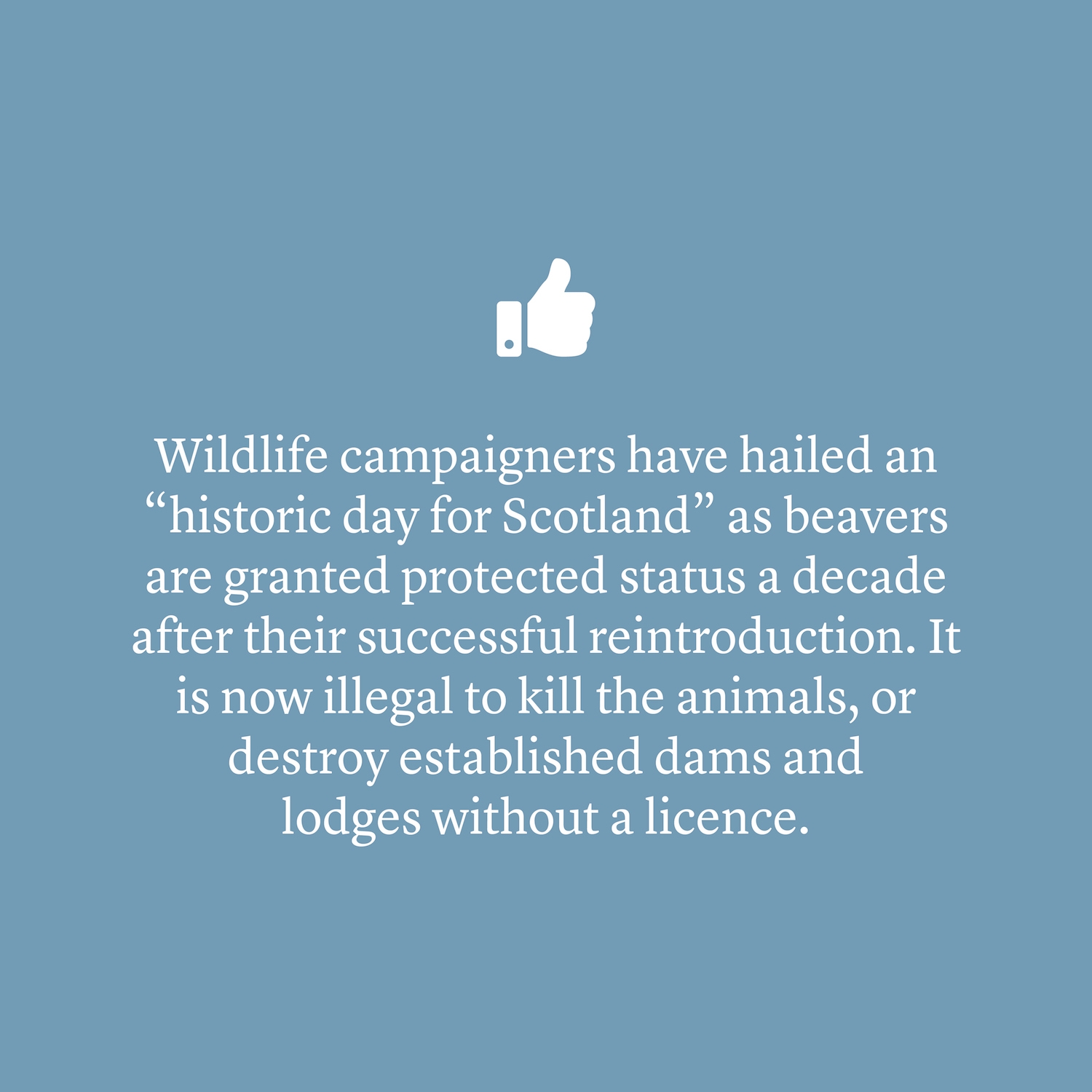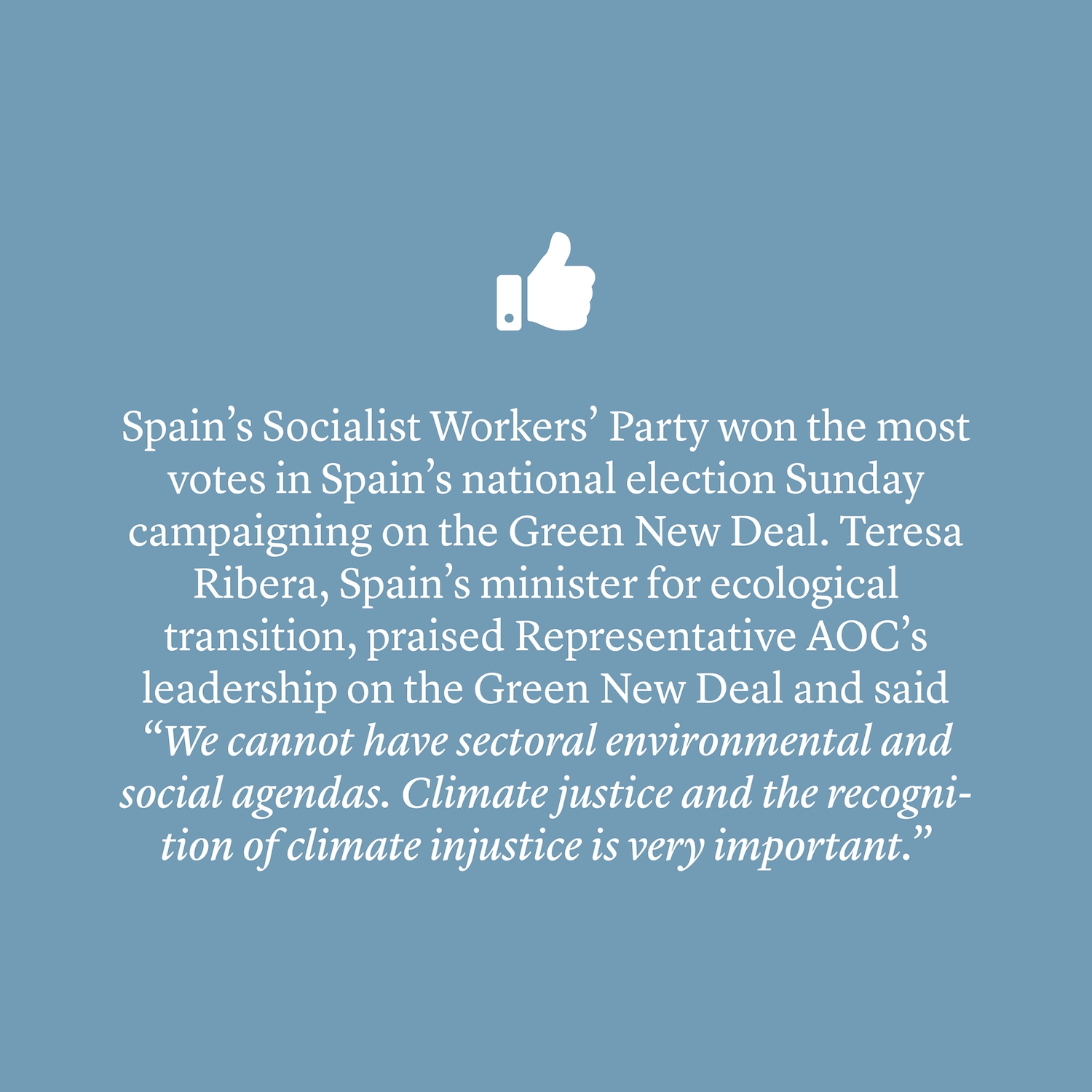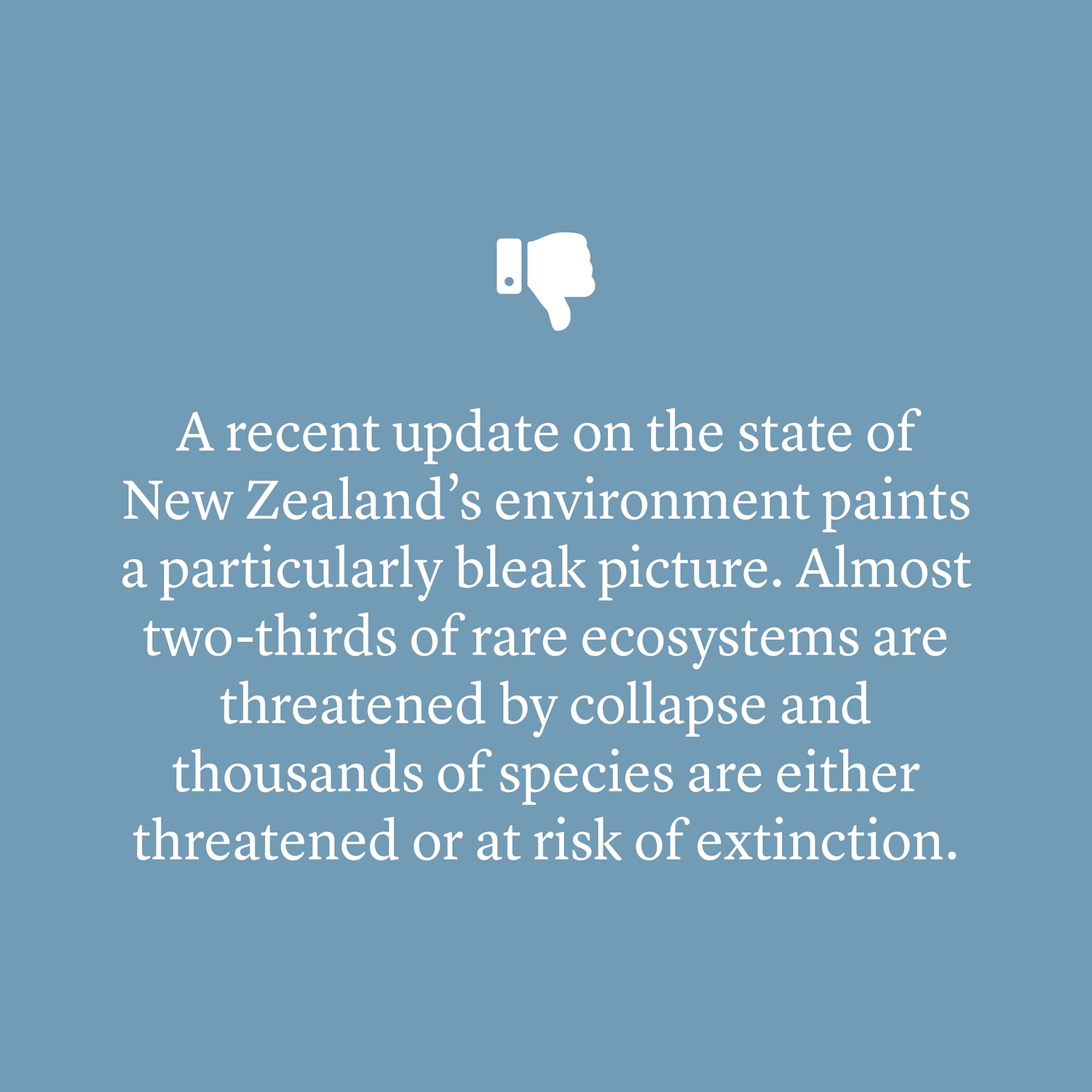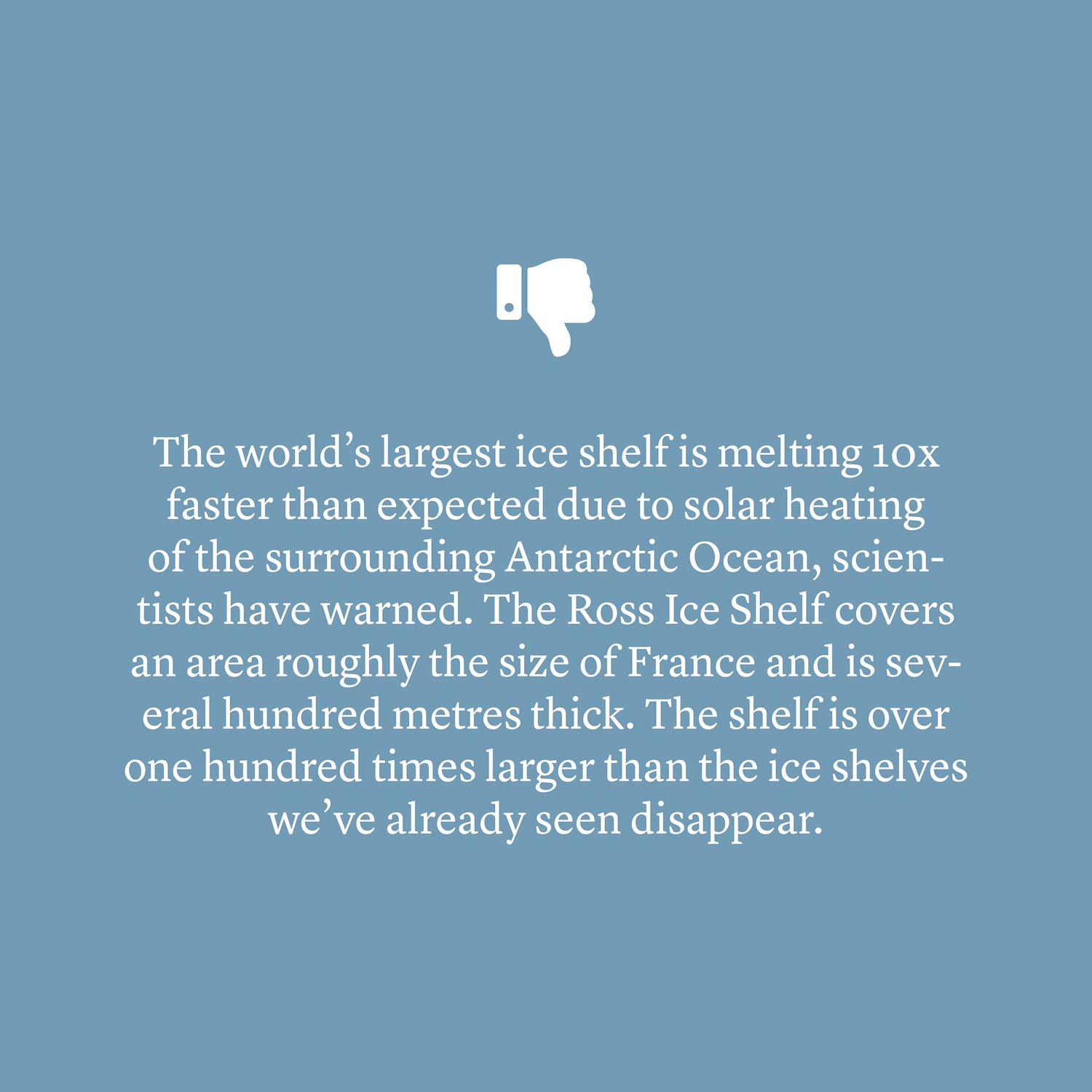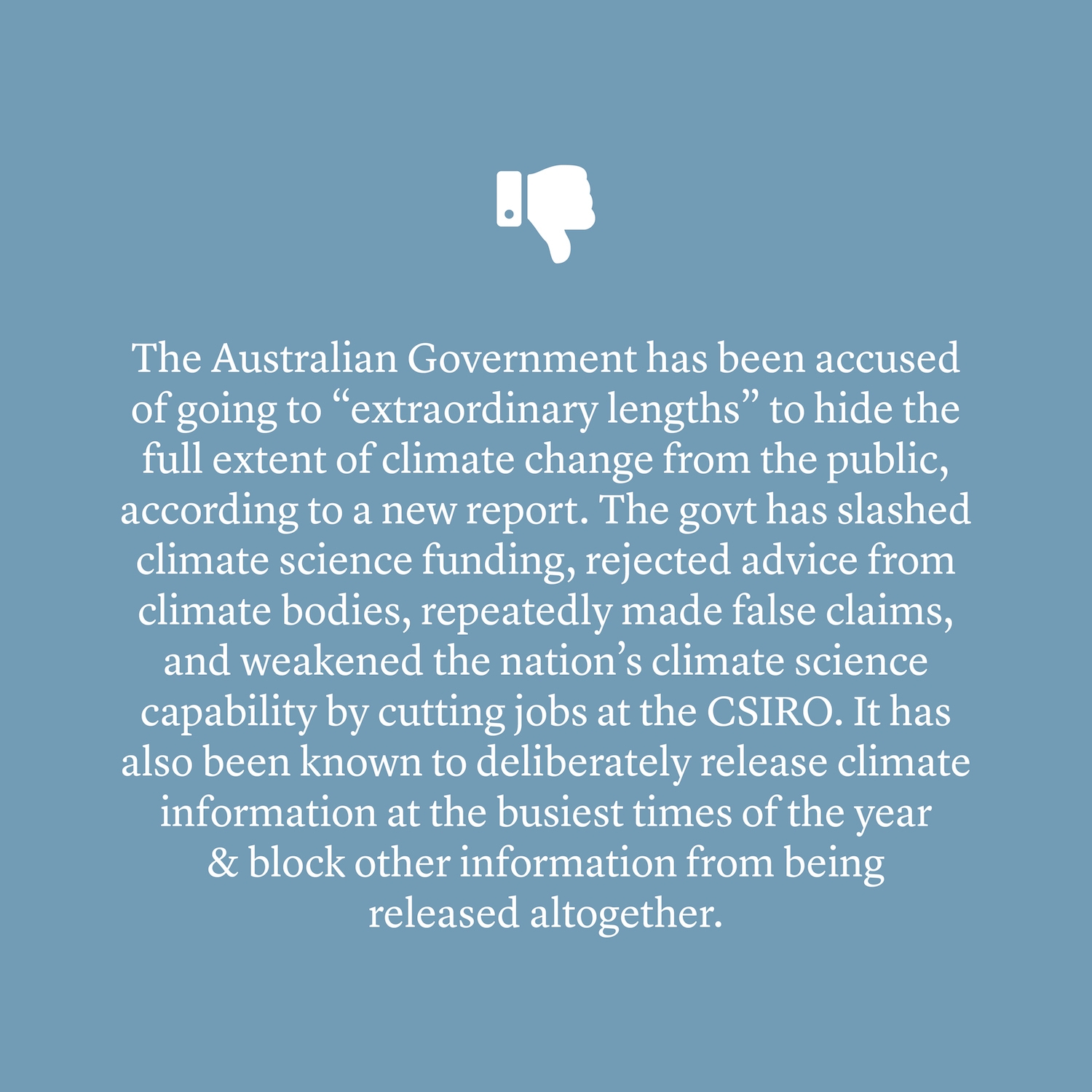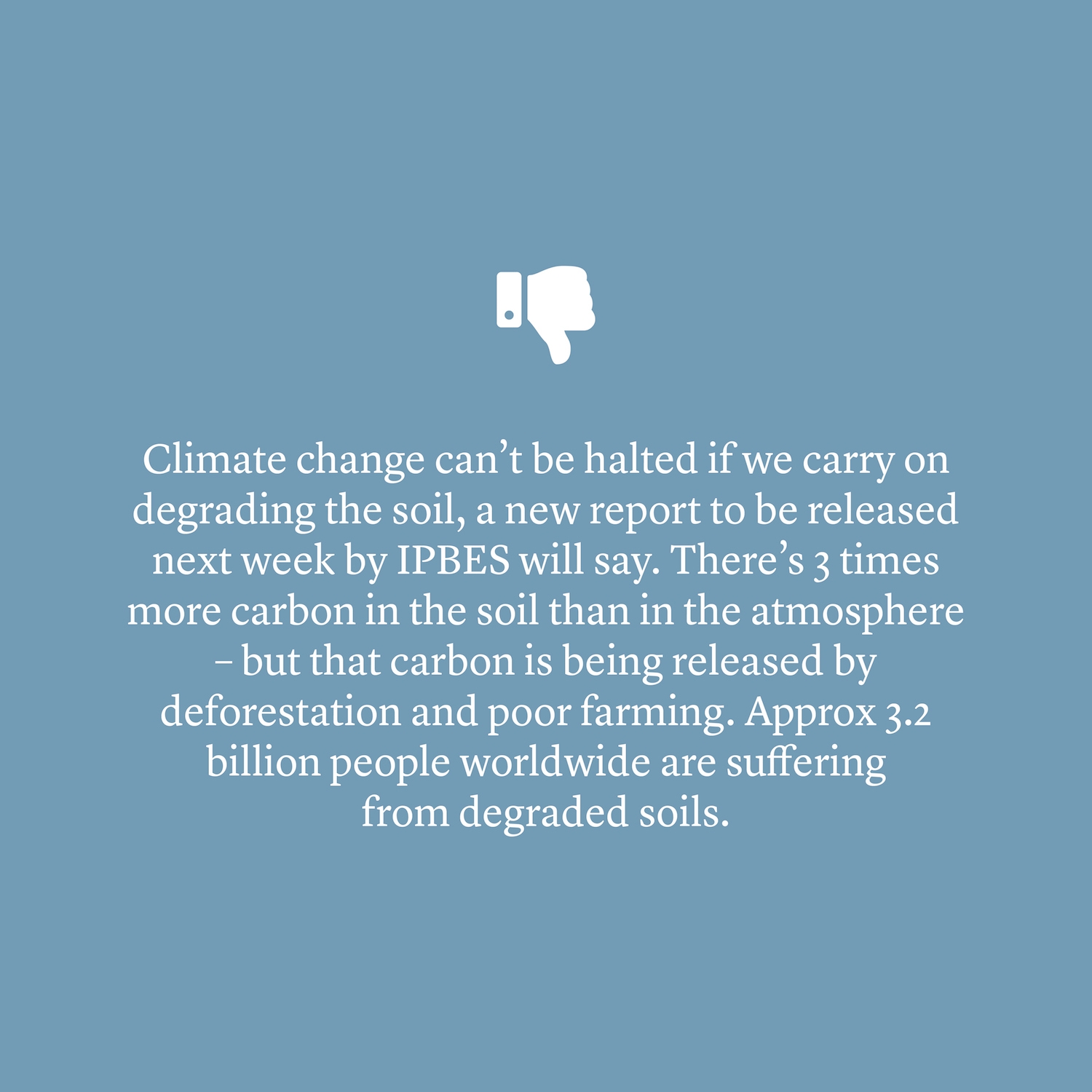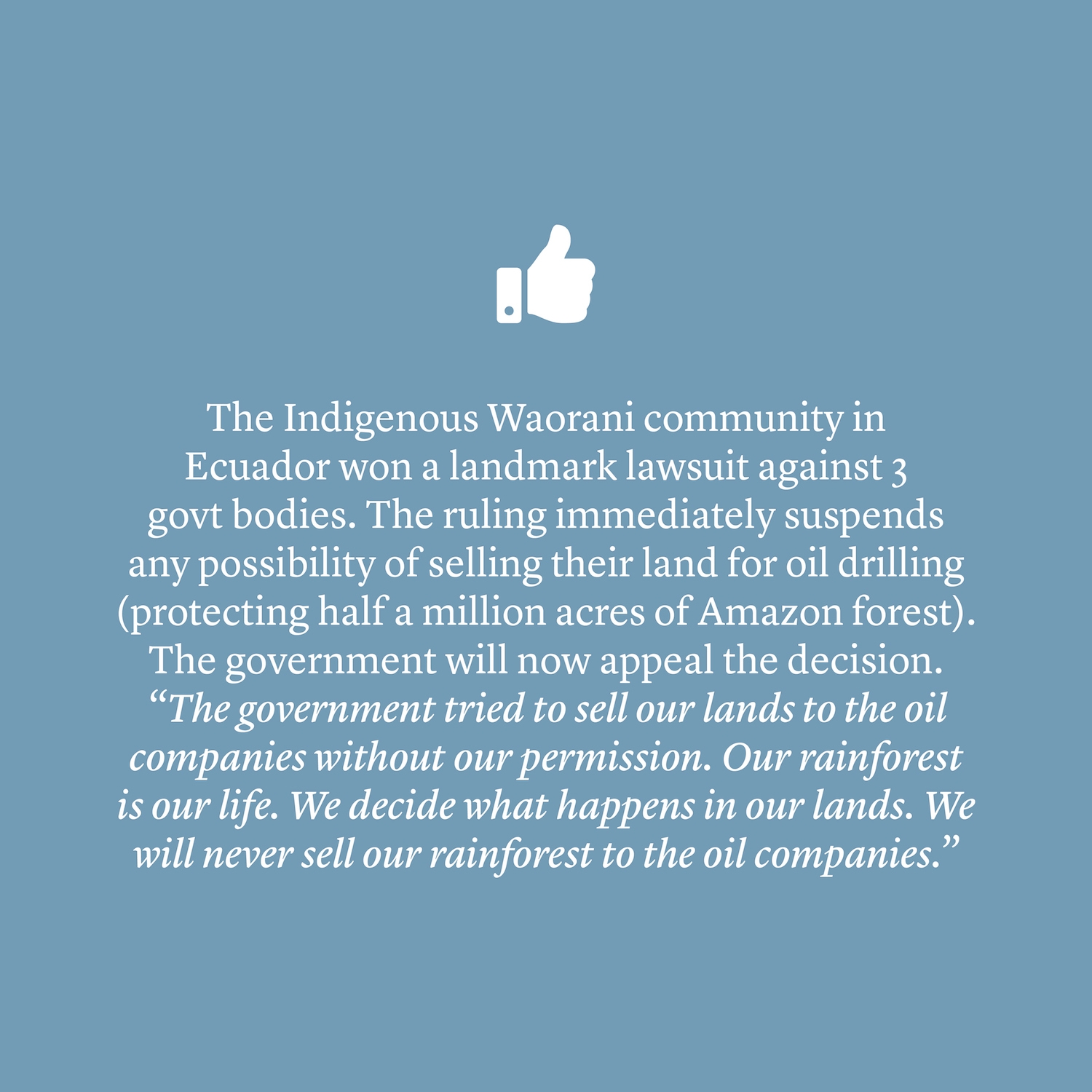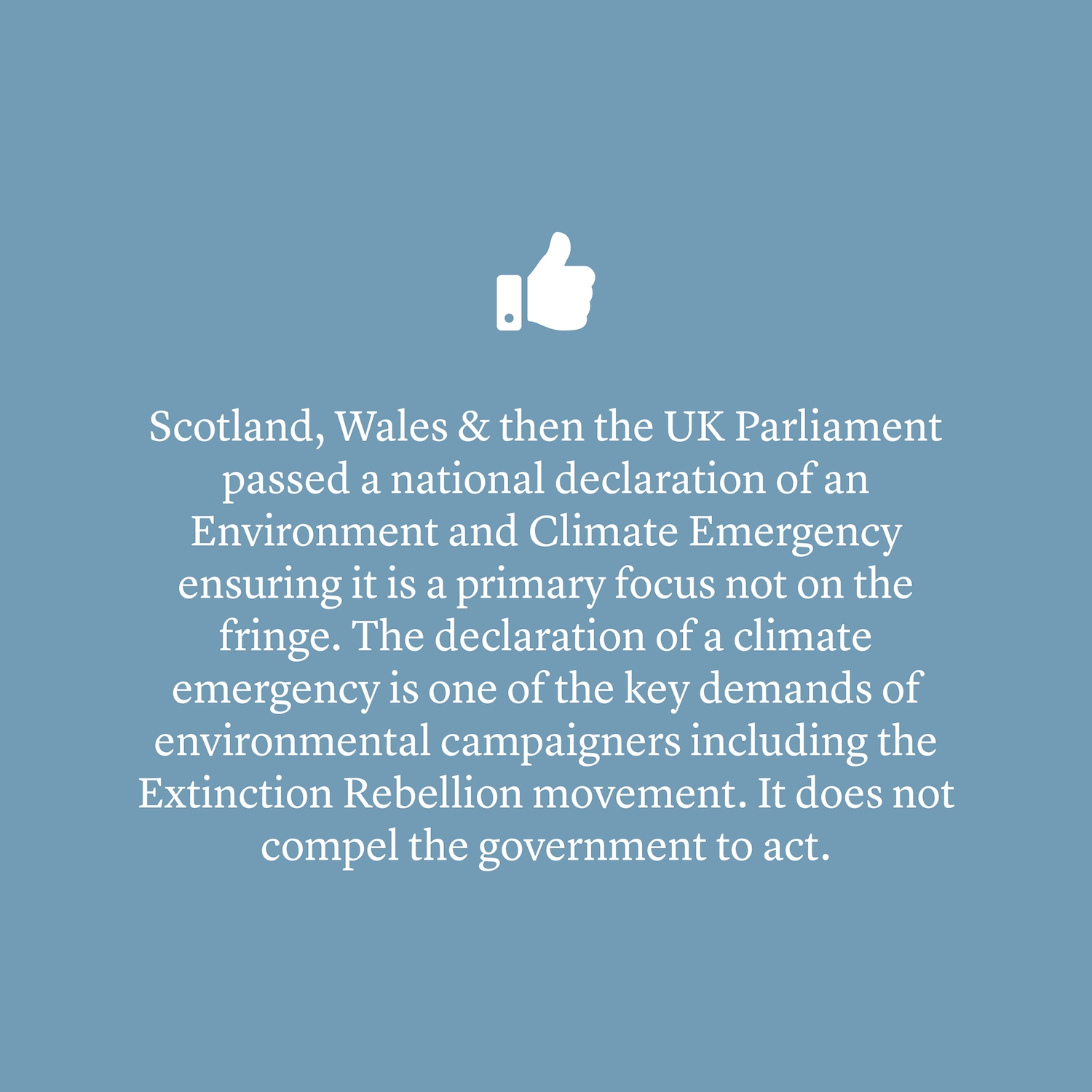New Zealand / Animals
1/ A recent update on the state of New Zealand’s environment paints a particularly bleak picture about the loss of native ecosystems and the plants and animals within them. Almost two-thirds of rare ecosystems are threatened by collapse, according to Environment Aotearoa 2019, and thousands of species are either threatened or at risk of extinction. Nowhere is the loss of biodiversity more pronounced than in Aotearoa New Zealand: with the highest proportion of threatened indigenous species in the world. This includes 90% of all seabirds, 84% of reptiles, 76% of freshwater fish and 74% of terrestrial birds. And this may well be an underestimate. (The Conversation / Phys)
America / Environment
2/ The Trump administration has issued a plan to open more than a million acres in California to fracking, including areas close to Yosemite, Kings Canyon and Sequoia national parks. The plan could end a five-year fracking moratorium in California enforced by a federal judge. Trump has attempted to lift environmental regulations on federal lands across the country and has vowed to increase America’s energy independence by opening up drilling domestically. (The Guardian)
Australia / Environment
3/ Australia has had quite the week with mining. Firstly, the multinational uranium miner persuaded the federal government to drop a requirement forcing it to show that a mine in outback Western Australia would not make any species extinct before it could go ahead. Canadian-based Cameco argued in November 2017 the condition proposed by the government for the Yeelirrie uranium mine, in goldfields north of Kalgoorlie, would be too difficult to meet. The mine was approved on 10 April, the day before the federal election was called, with a different set of conditions relating to protecting species. The Yeelirrie uraniam mine in Western Australia in the face of vigorous protest from traditional owners. Secondly, Commonwealth science agencies have raised doubts about controversial Adani’s modelling of the mine’s impact on the springs, one of the world’s last unspoiled desert oases. Thirdly, Chinese Shenhua mining under fire after ‘damning’ report highlights flawed environmental modelling. The figures in the new report would be detrimental to the underground water supply for households and primary producers. Figures suggested that Shenhua had overestimated that there was between 100 to 1,000 times more groundwater in the impact zone than what there actually was. And now, the Adani mine is delayed after management plan for black-throated finch rejected. It forces Adani to complete significant additional work before it can begin construction of the mine. (The Guardian / ABC / The Conversation / ABC 2 / The Guardian 2)
World / Climate Change
4/ Climate change can’t be halted if we carry on degrading the soil, a new report will say. There is 3x more carbon in the soil than in the atmosphere – but that carbon’s being released by deforestation and poor farming. Hurting the soil affects the climate in two ways: it compromises the growth of plants taking in carbon from the atmosphere, and it releases soil carbon previously stored by worms taking leaf matter underground. About 3.2 billion people worldwide are suffering from degraded soils. (BBC)
World / Climate Change
5/ The world’s largest ice shelf is melting 10x faster than expected due to solar heating of the surrounding Antarctic Ocean, scientists have warned. The Ross Ice Shelf covers an area roughly the size of France and is several hundred metres thick, with 90% of the ice below sea level. It found the ice is melting much more rapidly than previously thought, due to inflowing warm water. The findings indicate conditions in the ice shelf cavity are more closely related to the surface ocean and atmosphere than previously assumed. This also implies that melt rates near the ice front will respond quickly to changes in the uppermost layer of warmer water in the ocean. The difference here is the sheer size of Ross Ice Shelf, which is over one hundred times larger than the ice shelves we’ve already seen disappear. (Independent / BBC)
Brazil / Environment
6/ While much of the world struggles to clean up contamination from the toxic industrial compound PFOS, Brazil is still adding to the massive environmental mess with its large-scale production, use, and export of sulfluramid, a pesticide that degrades into PFOS. Linked to low birth weight, weakened immune response, liver effects, high cholesterol, thyroid dysfunction, cancer, and other health problems, PFOS is no longer made or used in most countries. Used for killing leaf-cutting ants, many households may be sprinkling the chemical, which vegetables can absorb from the soil. (The Intercept)
Australia / Climate Change
7/ The Australian Government has been accused of going to “extraordinary lengths” to hide the full extent of climate change from the public, according to a new report. The government had slashed climate science funding, rejected advice from climate bodies, repeatedly made false claims, and weakened the nation’s climate science capability by cutting jobs at the CSIRO. The government had also been known to deliberately release climate information at the busiest times of the year (like Christmas) and block other information from being released altogether. In 2016 the Federal Government censored a UNESCO report on climate change and World Heritage sites, convincing the UN agency to delete all references to Australia and the Great Barrier Reef as it might impact tourism. No sections about any other country were removed from the report. The removals left Australia as the only inhabited continent on the planet with no mentions. (SBS)
The good news…
UK / Climate Change
8/ Scotland was the first country to declare a climate emergency this week and was quickly followed by Wales. Then, a bipartisan UK Parliament passed an extraordinary measure: a national declaration of an Environment and Climate Emergency. The declaration of a climate emergency is one of the key demands of environmental campaigners including the Extinction Rebellion movement. It does not compel the government to act. Labour’s motion also calls on the government to aim to achieve net-zero emissions before 2050 and for ministers to outline urgent proposals to restore the UK’s natural environment and deliver a “zero waste economy” within the next six months. (Quartz / The Conversation / BBC)
Europe / Climate Change
9/ Nine environmental activists who participated in the Extinction Rebellion protests have announced they are standing in next month’s European elections In a statement, the collective said they wanted to see Europe reach net zero carbon emissions by 2030 and have new citizen assemblies set up to give ordinary people a voice in shaping environmental policy. (Independent)
UK / Climate Change
10/ Fracking tsar quits after six months and blames eco activists. Natascha Engel says developing the industry would be ‘an impossible task’. In her resignation letter, she said environmental activists had been “highly successful” in encouraging the government to curb fracking. Labour leader Jeremy Corbyn has called for a ban on fracking which he has said is “not compatible with climate change prevention”. (The Guardian / BBC)
Scotland / Animals
11/ Wildlife campaigners have hailed a “historic day for Scotland” as beavers are granted protected status a decade after their successful reintroduction in Argyll. It is now illegal to kill the animals, or destroy established dams and lodges without a licence. (The Guardian)
Spain / Climate Change
12/ Spain’s Socialist Workers’ Party (PSOE) won the most votes in Spain’s national election Sunday campaigning on the Green New Deal. On the less happy side, far-right conservatives gained a lot of seats. Teresa Ribera, Spain’s minister for ecological transition, praised Rep. Alexandria Ocasio-Cortez’s leadership on the Green New Deal and said “we cannot have sectoral environmental and social agendas. Climate justice and the recognition of climate injustice is very important.” (The Guardian / Eco Watch / BBC / The Intercept)
Amazon / Environment
13/ The Indigenous Waorani community in Ecuador won a landmark lawsuit on Friday against three government bodies for conducting a faulty consultation process with the community before putting their territory up for sale in an international oil auction. The ruling immediately suspends any possibility of selling the community’s land for oil exploration. It also sets an important precedent for other communities in Ecuador’s southern Amazon rainforest, trying to keep oil extraction out of their territories. The govt will now head to appeal. “The government tried to sell our lands to the oil companies without our permission. Our rainforest is our life. We decide what happens in our lands. We will never sell our rainforest to the oil companies.” (Al Jazeera / Amazon Frontlines)
Other notables…
- Global inequality is 25% higher than it would have been in a climate-stableworld. Those least responsible for global warming will suffer the most. (The Conservation / Huffington Post)
- The likelihood of an event like Hurricane Maria in Puerto Rico, and of its massive precipitation, is five-fold higher in the climate of today than it would have been some 60 years ago. (Scientific American)
- Ford Motor Co. revealed on Friday that it is the subject of a criminal investigation by the Department of Justice into its emissions certification process. The company said that the issues relate to “road load” estimations, which involve measuring the forces on a car when it’s traveling over a smooth, level surface at a constant speed. Those measurements affect a vehicle’s emissions and fuel economy. (Huffington Post)
- 5 weeks after historic flooding in the midwest, waters still cover pasturelands, corn and soybean fields. In March, more than 1.1m acres of cropland and pastureland flooded, prompting governors from Nebraska, Iowa, Missouri, Wisconsin and Minnesota to declare states of emergency. Climate change, experts say, is altering the landscape for the American farmer. Climate models predict more extreme weather patterns in the midwest over the coming decades. (The Guardian)
- The United States Fish and Wildlife Service that they would officially consider listing the giraffe as an endangered species, a move long sought by conservationists alarmed by the African mammal’s precipitous decline. (NYT / Smithsonian)
- It’s not just the whales. A necropsy of a female dolphin found stranded on Florida’s Fort Myers Beach revealed plastic bags and a piece of balloon in her stomach. Reports of marine mammals found stranded with plastic in their stomachs are becoming alarmingly common. (Huffington Post)
- A second powerful cyclone has hit Mozambique just 6 weeks after a storm killed hundreds of people and displaced hundreds of thousands. No one can recall a time before that the country has been hit by two storms this intense in one season. (NPR)
- Svalbard reindeer are so starving they’ve started eating seaweed, according to new research. With global warming causing more rain and less snow, their usual winter pastures have become trapped under ice. And to avoid starvation, many of these creatures have resorted to seaweed. Marooned on an island, without an ice corridor for escape (that, too, has melted), Hansen and his colleagues have watched the Svalbard reindeer grow ever more desperate. This is a less-than-ideal supplement, and an absolute last resort. While the salty snack does provide a few extra calories, the researchers say it often gives the reindeer diarrhoea. (Ecosphere)
The Intergovernmental Panel for Biodiversity and Ecosystem Services, or IPBES, will issue the first report of this type since 2005. It will detail the past losses and future prospects for nature and humans. One author says the report will highlight the “social and ecological emergency” the world is now facing. Their conclusions, known as a Summary for Policymakers, will then be published on 6 May. (BBC)
Beto O’Rourke, a Texan 2020 presidential candidate, releases $5 trillion climate change proposal as his first policy, proving it has become an important political issue among voters in America. (NYT)
Climate change damage to Queensland’s world heritage rainforest ‘as bad as Great Barrier Reef’. In an extraordinary statement issued on Monday, the authority’s board said the tropical rainforest was in “accelerating decline” and that some of the area’s unique species were at imminent risk of extinction. Last summer was the hottest on record. (The Guardian)
- A growing body of research is challenging the assumption that neonicotinoids are safer and less likely to spread than other pesticides. Neonicotinoids, which target insects’ nervous systems with lethal efficiency, were developed by Bayer (who acquired Monsanto) in the 1980s as a safer alternative to existing pesticides. Only 2 to 20% of the neonicotinoids applied to seeds make it into the plant. “That begs the question of where the other 80 to 98% of the chemicals are going and we’re starting to find them in other areas of the environment. We’re finding them in surface waters. We’re finding them in untreated plants.” The pesticides are also water-soluble, which is why they can be delivered to growing plants via irrigation, but also means runoff can carry them to lakes and rivers. The pesticides are starting to effect animals. Neonicotinoids are also turning up in human food. A 2018 review in Environmental Science and Toxicity found that more than half of the fruits and vegetables served in the U.S. Congress’s cafeteria contained neonicotinoids, albeit at levels the EPA considers acceptable based on studies in rodents. (Scientific American)
- Maine became the first U.S. state to ban single-use foam containers this week, a major legislative victory meant to curb the flow of plastic pollution. (Huffington Post)
- The Trump administration on Thursday moved to ease safety regulations adopted after the 2010 BP Deepwater Horizon blowout, the worst offshore oil disaster in US history. The easing of some of the Obama-era safety measures come as the Trump administration pushes to greatly expand drilling off the country’s coasts. (The Guardian)
- During negotiations on an international statement on Arctic policy, the United States pushed to remove references to “climate change” from the document — a position that threatened to spark a standoff between the US and other Arctic nations. (Independent)
A first-of-its-kind study confirms the connection between climate change and droughts and deluges over the past century.Scientists have unearthed clear evidence that the rise of human-generated greenhouse gases was having an effect on global drought conditions as early as 1900. (National Geographic)
- More common dolphins have washed up dead on France’s Atlantic Coast since January than in all of 2017 or 2018. Scientists blame fishing. For every carcass that ends up on a beach, several more decay at sea, wildlife biologists say. Some have nets tens of kilometers long. Because the common dolphin is a protected species, fishermen cannot bring the bodies ashore, so they throw the carcasses into the sea and most bycatch remains unseen. (NYT)
